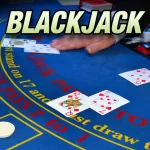Burning is a card-dealing technique commonly employed in casino poker and other card games. The purpose of burning is to discourage players from marking cards and using that information for their advantage.
Poker traditionally involves burning the top card before each betting round to prevent players from exploiting card markings they may have noticed earlier in the hand. While this practice has become rarer in modern environments, it remains a part of the game.
Why Do Dealers Burn Cards?
Poker dealers burn cards (discard them) in order to prevent cheating via card marking. This type of cheating occurs when players can identify the top card in a deck based on any marks or folds made on it.
Dealers burn cards in all multi-street games, including Texas Hold’em, to prevent players from gaining an unfair advantage by using marked cards. Burning also helps prevent second dealing – when someone knows the value of a top card and deals it without having a chance to check its suitability.
Do Dealers Burn Cards Before Dealing to the Players?
Before the dealers deal to the players, they discard one card from the top of the deck – this card is known as a burn card and serves to prevent card marking, an act of cheating.
This ensures no one at the table knows what a dealer has discarded and also prevents second dealing, a form of cheating.
Poker players typically preflop, turn, and river their cards. This is a standard practice in multi-street games such as Texas Hold’em, whether played at a casino or with friends at home.
Do Dealers Burn Cards After Dealing to the Players?
Dealers are the individuals or firms responsible for dealing cards in poker and other games. By law, they must be fair and honest when dealing with customers.
As a dealer, they must meet certain qualifications and pass the suitability test. This ensures they only recommend financial products which are suitable for their clients.
Dealers prevent cheating by burning cards from the top of the deck. This helps eliminate any chance that a player could identify a card’s value and use it to their advantage in a hand.
Do Dealers Burn Cards Before the Flop?
Before the Flop, the dealer burns a card to prevent players from seeing the back of the next community card that will be dealt. This practice has long been done with historical/traditional reasons in mind: to prevent anyone from anticipating which card will be dealt next.
Poker dealers must know how to deal cards correctly so that the game runs efficiently and the player experience is positive. This includes making sure cards don’t flash, which could cause extra cards to be dealt, and that they aren’t shuffled incorrectly.
Do Dealers Burn Cards Before the Turn?
Texas Hold’em requires dealers to burn the top card of the deck before dealing the flop, turn, and river cards. This practice is also commonplace in other poker variants with multi-street betting rounds.
The burn card is used to deter cheaters from marking cards in the deck, and it also prevents second dealing by players who know the value of a particular card.
Texas Hold’em players often follow a tradition of burning cards during live games; however, this custom is not mandatory in online poker games.
Do Dealers Burn Cards After the River?
Poker requires the dealer to burn cards before dealing them to players in each of three betting rounds (flop, turn, and river). This prevents cheating with marked cards.
Once a card has been burned, it is permanently placed face down and out of play. This enables the player to use only correct cards during subsequent betting rounds until their hand is complete.
A burn card is also used to prevent second dealing. This occurs when a player knows their top card and chooses to deal with that instead of the initial one.













